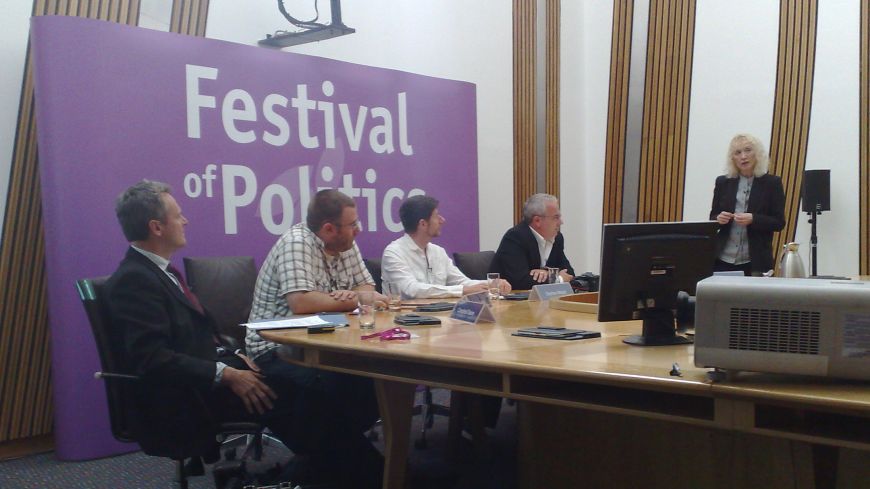
Have you been stopped from taking a photograph in a public place? Was it a police officer? A private security guard? Did you self-censor?
As part of the Festival of Politics, a panel of 3 photographers and 2 lawyers discussed the impact of the Terrorism Powers and Human Rights legislation on our freedom to take photographs before an audience in Committee Room 1 at the Scottish Parliament.
The panel
- Chair Stephen Mayes Runs a photo agency and the World Press Photo competition.
- Marc Vallee Pro-press photographer, NUJLeft member and pro-freedom activist.
- Linda Macpherson Media lawyer and author of Photographers Rights Guide
- Campbell Dean Media lawyer specializing in privacy/celebrity.
- Damien Demolder Editor of Amateur Photographer.
The myths
- It's illegal to photo police or armed forces.
- It's illegal to photo a private building.
- It's illegal to photograph children in public places.
The truth
- Many junior police officers claim it's illegal to photograph them. They may also demand your camera and/or insist photos are erased. They have no such powers. Written instructions from very senior police sources support your freedom.
- Security Guards often attempt to stop you taking photos but if you are in a public place they have no rights.
- While its legal to photo children in a public place many people falsely believe it's an offence.
Two recent reasons for restrictions
- Terrorism 2000 legislation specifically Sections 44, 43, 76 & 58A.
- Human Rights incorporated into UK laws including a “right to privacy”.
The presentation
- Marc Vallee related personal experience of police over-extending their powers and has won damages and a public apology from the Met Police.
- Linda Macpherson outlined the legal changes. Section 44 now abandoned by Con-Dem coalition following European ban. 450,000 people targeted by Sect.44 and zero people charged. Breach of Peace charge could result in Scotland if convicted of “harassing with a camera”.
- Campbell Dean explained the conflict resulting from Human Rights legislation; the right to privacy versus the right to freedom of expression.
- Damien Demolder stressed the photographers right to take street and candid photographs; “the law hasn't changed but police behave as if it has”.
Review
Considering there were two Scots lawyers on the panel the lack of a Scottish dimension was disappointing. The frequent references to PCSOs (Police Community Support Officers...a kind of Special Constable service in England) annoyed.
The relative importance of the issue did eventually became much clearer, however the time allocated for Q & A at the end was insufficient for the controversial points raised.

